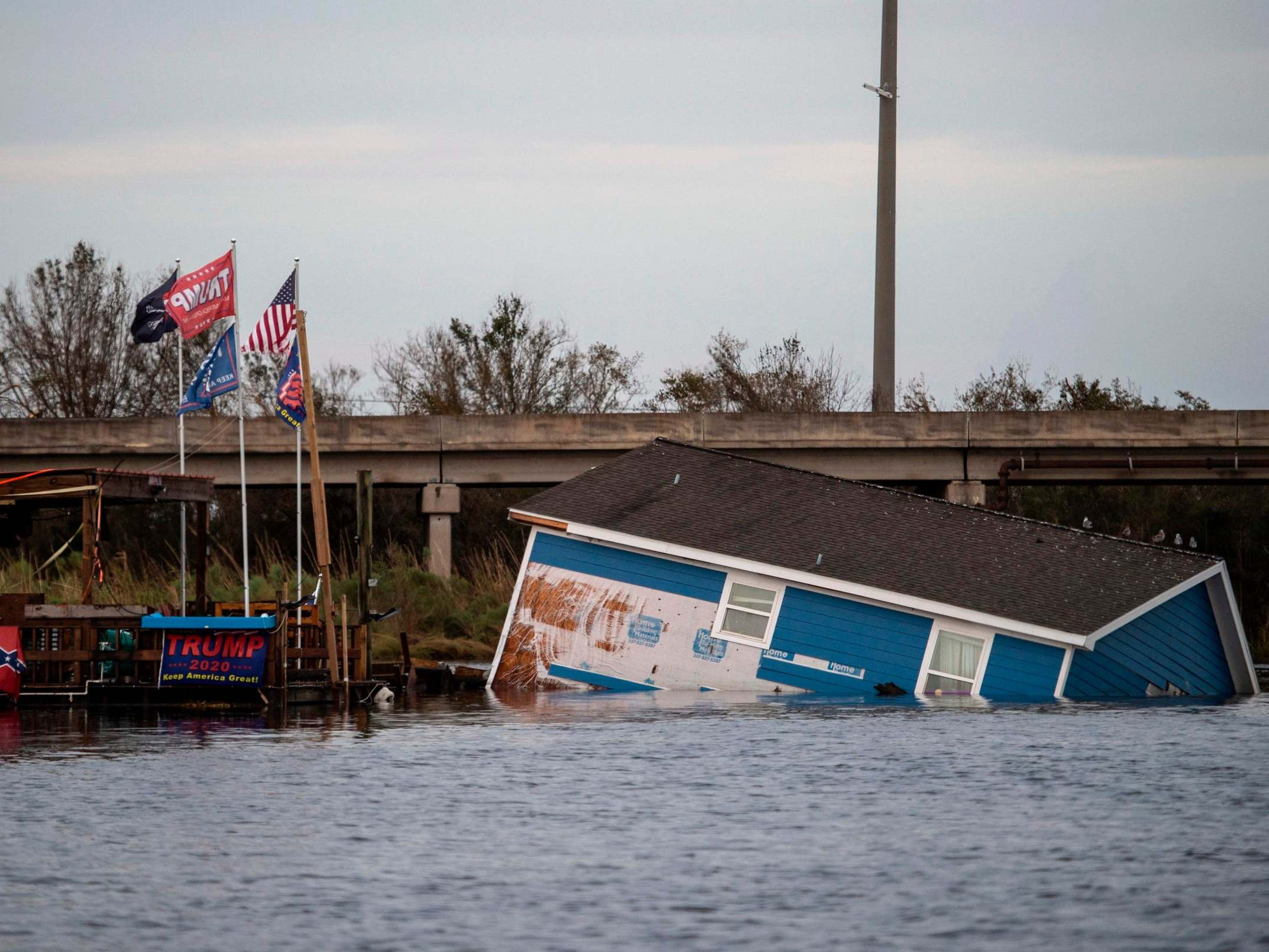Hurricane Laura: Trump heads to Louisiana as residents warned they face weeks without power
More than 220,000 people are without water, according to the Louisiana Department of Health

Your support helps us to tell the story
From reproductive rights to climate change to Big Tech, The Independent is on the ground when the story is developing. Whether it's investigating the financials of Elon Musk's pro-Trump PAC or producing our latest documentary, 'The A Word', which shines a light on the American women fighting for reproductive rights, we know how important it is to parse out the facts from the messaging.
At such a critical moment in US history, we need reporters on the ground. Your donation allows us to keep sending journalists to speak to both sides of the story.
The Independent is trusted by Americans across the entire political spectrum. And unlike many other quality news outlets, we choose not to lock Americans out of our reporting and analysis with paywalls. We believe quality journalism should be available to everyone, paid for by those who can afford it.
Your support makes all the difference.The clean-up has begun from Hurricane Laura in the US state of Louisiana, with officials along a shattered stretch of coast warning returning residents they could face weeks without power or water.
The US toll from the Category 4 hurricane stood at 14 deaths, with more than half of those killed by carbon monoxide poisoning from the unsafe operation of generators.
President Donald Trump plans to tour the damage in Louisiana and neighbouring Texas.
He told reporters he considered delaying his Thursday night speech accepting the Republican Party's nomination for re-election because of the storm, but said that “it turned out, we got a little bit lucky. [The storm] was very big, it was very powerful, but it passed quickly”.
Across south-western Louisiana, people are cleaning up from the destructive hurricane that roared ashore early on Thursday, packing 150mph (241.4kph) winds.
Many people are deciding whether they wanted to stay in miserable conditions or wait until basic services are finally restored.
Simply driving was a feat in Lake Charles, a city of 80,000 residents hit head-on by the hurricane's eye. Power lines and trees blocked paths or created one-lane roads that drivers had to navigate with oncoming traffic.
Street signs were snapped off their posts or dangling. No stop lights worked, making it an exercise in trust with other motorists sharing the roads.
Mayor Nic Hunter cautioned that there was no timetable for restoring electricity and that water-treatment plants “took a beating”, leaving barely a trickle of water coming out of most taps.
“If you come back to Lake Charles to stay, make sure you understand the above reality and are prepared to live in it for many days, probably weeks,” Mr Hunter wrote on Facebook.
Caravans of utility trucks were met on Friday by thunderstorms in the sizzling heat, complicating recovery efforts.
The Louisiana Department of Health estimated that more than 220,000 people were without water. Restoration of those services could take weeks or months, and full rebuilding could take years.
Forty nursing homes were relying on generators, and assessments are under way to determine if more than 860 residents in 11 facilities which had been evacuated could return.
The much weaker remnants of the hurricane continued to move across the southern US, unleashing heavy rain and isolated tornadoes.
North Carolina and Virginia could get the brunt of the worst weather on Saturday, forecasters said.
When the storm moves back over the Atlantic Ocean, forecasters said it could become a tropical storm again and threaten Newfoundland, Canada.
Louisiana governor John Bel Edwards called Laura the most powerful hurricane to strike the state, meaning it surpassed even Katrina, which was a Category 3 storm when it hit in 2005.
He said officials now believe the surge was as high as 15 feet (4.6 metres).
The hurricane also killed nearly two dozen people in Haiti and the Dominican Republic en route to the Gulf Coast.
AP
Join our commenting forum
Join thought-provoking conversations, follow other Independent readers and see their replies
Comments